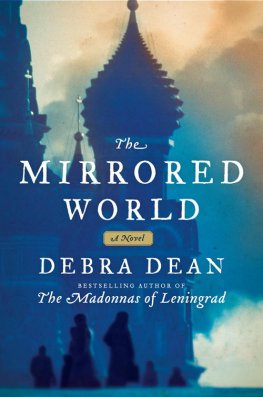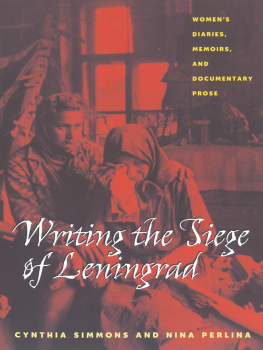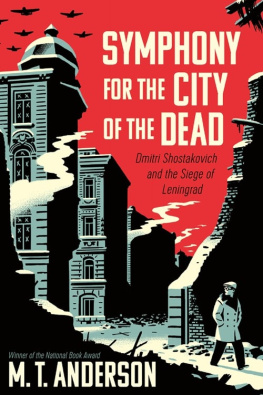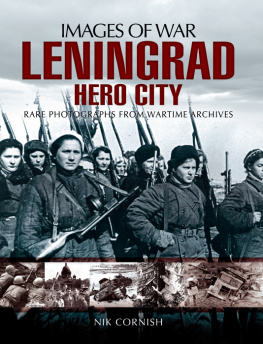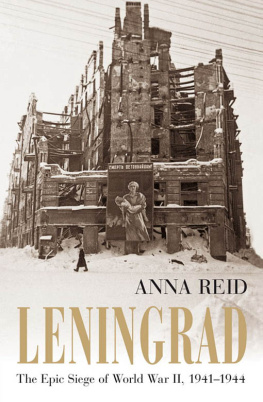This way, please. We are standing in the Spanish Skylight Hall. The three skylight halls were designed to display the largest canvases in the collection. Look up. The huge vault and frieze are like a wedding cake, with molded and gilt arabesques. Light streams down on parquet floors the color of wheat, and the walls are painted a rich red in imitation of the original cloth covering. Each of the skylight halls is decorated with exquisite vases, standing candelabra, and tabletops made of semiprecious stones in the Russian mosaic technique.
Over here, to our left, is a table with a heavy white cloth. Three Spanish peasants are eating lunch. The fellow in the center is raising the decanter of wine and offering us a drink. Clearly, they are enjoying themselves. Their luncheon is lighta dish of sardines, a pomegranate, and a loaf of breadbut it is more than enough. A whole loaf of bread, and white bread at that, not the blockade bread that is mostly wood shavings.
The other residents of the museum are allotted only three small chunks of bread each day. Bread the size and color of pebbles. And sometimes frozen potatoes, potatoes dug from a garden at the edge of the city. Before the siege, Director Orbeli ordered great quantities of linseed oil to repaint the walls of the museum. We fry bits of potato in the linseed oil. Later, when the potatoes and oil are gone, we make a jelly out of the glue used to bind frames and eat that.
The man on the right, giving us a thumbs-up, is probably the artist. Diego Rodriguez de Silva y Velzquez. This is from his early Seville period, a type of painting called bodegones, scenes in taverns.
It is as though she has been transported into a two-dimensional world, a book perhaps, and she exists only on this page. When the page turns, whatever was on the previous page disappears from her view.
Marina finds herself standing in front of the kitchen sink, holding a saucepan of water. But she has no idea why. Is she rinsing the pan? Or has she just finished filling it up? It is a puzzle. Sometimes it requires all her wits to piece together the world with the fragments she is given: an open can of Folgers, a carton of eggs on the counter, the faint scent of toast. Breakfast. Has she eaten? She cannot recall. Well, does she feel hungry or full? Hungry, she decides. And here is the miracle of five white eggs nested in a foam carton. She can almost taste the satiny yellow of the yolks on her tongue. Go ahead, she tells herself, eat.
When her husband, Dmitri, comes into the kitchen carrying the dirty breakfast dishes, she is poaching more eggs.
What are you doing? he asks.
She notes the dishes in his hands, the smear of dried yolk in a bowl, the evidence that she has eaten already, perhaps no more than ten minutes ago.
Im still hungry. In fact, her hunger has vanished, but she says it nonetheless.
Dmitri sets down the dishes and takes the pan from her hands, sets it down on the counter also. His dry lips graze the back of her neck, and then he steers her out of the kitchen.
The wedding, he reminds her. We need to get dressed. Elena called from the hotel and shes on her way.
Elena is here?
She arrived late last night, remember?
Marina has no recollection of seeing her daughter, and she feels certain she couldnt forget this.
Where is she?
She spent the night at the airport. Her flight was delayed.
Has she come for the wedding?
Yes.
There is a wedding this weekend, but she cant recall the couple who is marrying. Dmitri says she has met them, and its not that she doubts him, but
Now, who is getting married? she asks.
Katie, Andreis girl. To Cooper.
Katie is her granddaughter. But who is Cooper? Youd think shed remember that name.
We met him at Christmas, Dmitri says. And again at Andrei and Naureens a few weeks ago. Hes very tall. He is waiting for some sign of recognition, but there is nothing. You wore that blue dress with the flowers, and they had salmon for supper, he prompts.
Still nothing. She sees a ghost of despair in his eyes. Sometimes that look is her only hint that something is missing. She begins with the dress. Blue. A blue flowered dress. Bidden, it appears in her minds eye. She bought it at Penneys.
It has a pleated collar, she announces triumphantly.
Whats that? His brow furrows.
The dress. And branches of lilac flowers. She can call up the exact shade of the fabric. It is the same vivid robins-egg as the dress worn by the Lady in Blue.
Thomas Gainsborough. Portrait of the Duchess of Beaufort. She packed that very painting during the evacuation. She remembers helping to remove it from its gilt frame and then from the stretcher that held it taut.
Whatever is eating her brain consumes only the fresher memories, the unripe moments. Her distant past is preserved, better than preserved. Moments that occurred in Leningrad sixty-some years ago reappear, vivid, plump, and perfumed.
In the Hermitage, they are packing up the picture gallery. It is past midnight but still light enough to see without electricity. It is the end of June 1941, and this far north, the sun barely skims beneath the horizon. Belye nochi, they are called, the white nights. She is numb with exhaustion and her eyes itch from the sawdust and cotton wadding. Her clothes are stale, and it has been days since she has slept. There is too much to be done. Every eighteen or twenty hours, she slips away to one of the army cots in the next room and falls briefly into a dreamless state. One cant really call it sleep. It is more like disappearing for a few moments at a time. Like a switch being turned off. After an hour or so, the switch mysteriously flips again, and like an automaton she rises from her cot and returns to work.
All the doors and windows are thrown open to the remaining light, but it is still very humid. The airplanes buzz and drone, but she has stopped flinching when she hears one directly overhead. In the space of a few days and nights, the planes have become part of this strange dream, both tangible and unreal.
Sunday morning, Germany attacked without warning. No one, not even Stalin it seems, saw this coming. No one except Director Orbeli, the head of the museum. How else to explain the detailed evacuation plan that appeared almost as soon as news of the attack came over the radio? On this list, every painting, every statue, nearly every object that the museum possesses, was numbered and sorted according to size. Even more astonishing, wooden crates and boxes were brought up from the basement with corresponding numbers already stenciled on their lids. Kilometers of packing paper, mountains of cotton wool and sawdust, rollers for the paintings, all these appeared as if preordained.
She and another of the museums tour guides, Tamara, have just finished removing the Gainsborough from its frame. It is not one of her favorites. The subject is a pampered woman with powdered hair rolled and piled ridiculously high, and topped with a silly feathered hat. Still, as Marina is about to place the canvas between oiled sheets of paper, she is struck by how naked the figure looks out of its frame. The ladys right hand holds her blue wrap up protectively over her breast. She stares out past the viewer, her dark eyes transfixed. What Marina has always taken to be a vacant-eyed gaze looks suddenly sad and calm, as though this woman from a long-ago ruling class can envision how her fortunes are about to change again.


